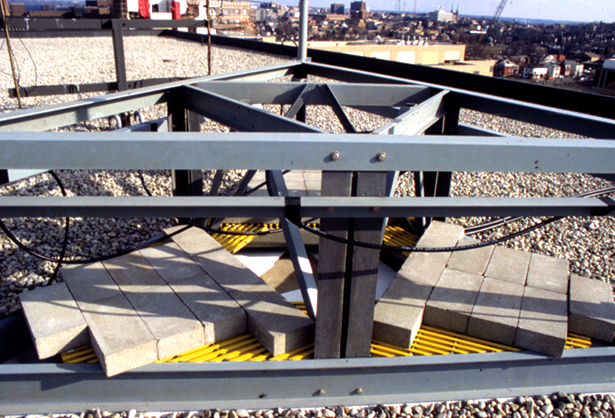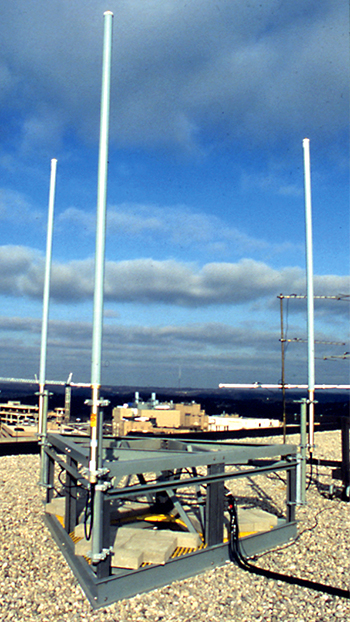Case Study: Fiberglass Platforms are Ideal Support for Cell Sites

 Triangular (14' x 14' x 14' x 42" high) platforms of EXTREN® fiberglass structural shapes and DURADEK® fiberglass grating are support structures for Cellular One of Ohio antennae installed on building roofs and towers.
Triangular (14' x 14' x 14' x 42" high) platforms of EXTREN® fiberglass structural shapes and DURADEK® fiberglass grating are support structures for Cellular One of Ohio antennae installed on building roofs and towers.
Cellular One of Ohio engineers chose fiberglass platforms over previously used steel platforms. “The obvious advantages of fiberglass are its lightweight (80% lighter than steel), low maintenance, corrosion resistant and RFI/EMI transparent characteristics, so it doesn’t interfere with radio signals — but the price was also competitive with steel, given the advantages,” said Terry Solt, Construction Manager for Cellular One of Ohio.
Lightweight fiberglass platforms are easy to fabricate and install. (Each platform can accommodate up to six antennae.) Two men can manually install the platforms and antennae without heavy equipment. Due to its lightweight, the cell site can be easily moved to various spots on the roof until it is synchronized in relation to other antennae on other buildings.
| TECHNICAL DATA |
|---|
| Product: Triangular Antenna Mount |
| Process: Pultrusion |
Materials:
|
Sizes: EXTREN structural shapes:
|
| For: Cellular One of Ohio |
Cellular communications technology is changing so fast that cell site owners have to be able to change out equipment easily. Lightweight fiberglass platforms make equipment changes easier than steel platforms. Furthermore, building roofs do not have to be reinforced to support fiberglass platforms as is often the case with steel platforms.
“I see a lot of potential in this field,” said Solt. “For example, we now have in the design stage, a fiberglass building to house cellular equipment.”
In other applications in the past, DURASHIELD® fiberglass building panels, manufactured by Strongwell, have been fabricated into fiberglass structures to enclose cellular antennae. These structures are RFI/EMI transparent, shield cellular equipment from high winds and weathering, and are used for aesthetic reasons.
The cellular industry is one of the fastest growing industries in the country. In 1985, the cellular industry was a $25 million business. Today it is a $5 billion industry.